Letter 166
Sweeping along the coast between the quiet town of Kalamaki and the vibrant hotspot of Laganas, the bay is crystal blue with calm waves and expansive views. Primarily it is home to one of the largest populations of Loggerhead turtles and the region typically sees over 1000 nests each summer. Secondly, it is becoming a massive tourist magnet for families on their summer holidays and groups of teens straight out of college on mad weeks away. I loved the area but each day gave me more cause for concern about the state of the tourist industry here and the state of the waters which are home to so many vulnerable turtles and hatchlings.
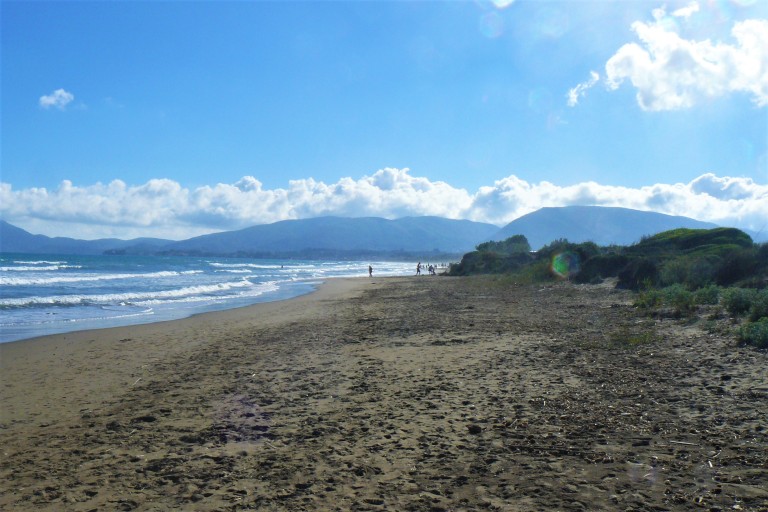
Four summers ago I spent six weeks in the tiny town of Koroni in the Pelopponese region of mainland Greece, volunteering for Archelon.
ARCHELON is a sea turtle protection charity with project areas all over Greece. With the help of hundreds of volunteers, they protect around 2,500 nests each year. I have written a couple of detailed posts about my experience working on the project here: VOLUNTEERING FOR A SEA TURTLE PROTECTION CHARITY (and having a ball doing it) | I volunteered for sea turtles: all the info
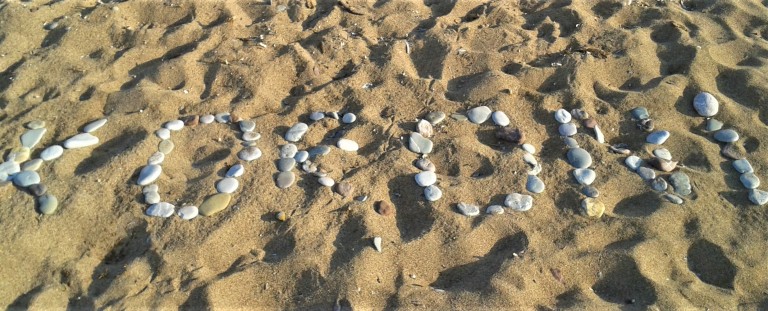
It sounds strange, but the mentality back then was so different. In just four years, there has been a huge shift in the way people think about human effects on wildlife such as sea turtles. Perhaps we can thank Sir David Attenborough for the majority of this, but in general, everyone has become much more conscious of the issues we create for marine wildlife and makes an effort to reduce this. Or so I thought.
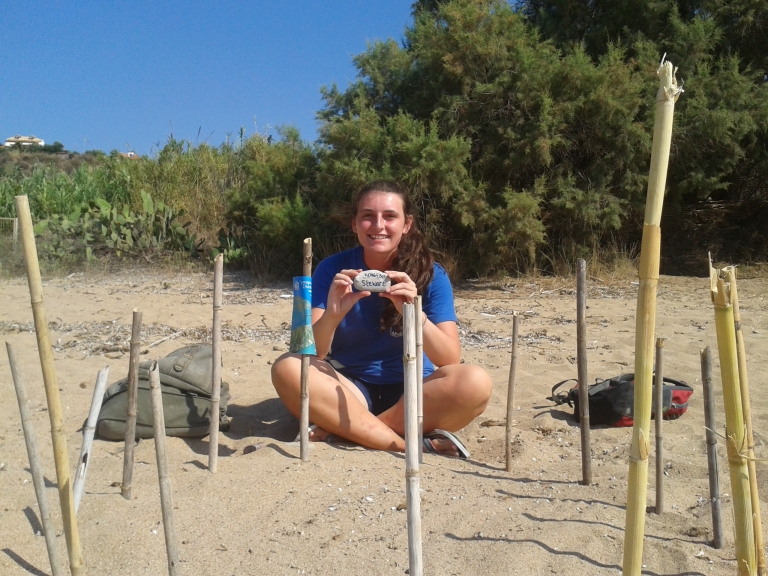
Straws are the enemy
One of the biggest changes to everyday life, especially in Britain, is that everyone is now so aware of the dangers of plastic straws. You will rarely find plastic straws in bars and restaurants and if you are caught buying them you may be judged by onlookers. This is a great step forward as they are so unnecessary and cause a lot of issues for marine wildlife. So why is it people forget about this when they are away?
We are so lucky in Britain that we have now been educated about this and now don’t use plastic straws as much, or at all. But really, we’re not the country that needs to stop it. It’s places like the Mediterranean that need to reduce the amount of plastic straws in circulation so that less end up in poor turtles nostrils. Whilst this may be the thing that sparked a reduction of plastic straw use, they actually affect other animals far more. Sea birds are one species that have been known to ingest discarded straws, which can lead to their death.
What angered me most when I was in Greece was not that restaurants and bars were still giving out straws (sometimes 2 per drink), it was that tourists were accepting it. Just because you are in another country that is slightly behind on eco-friendly actions, doesn’t mean you should step back and let it happen. Around 30 million tourists visit Greece each year, probably a large percentage are from countries like the UK where we now know of the dangers of simple things like straws. We should be the ones to bring about the change and go without.
Article about the impact of plastic straws on marine life.
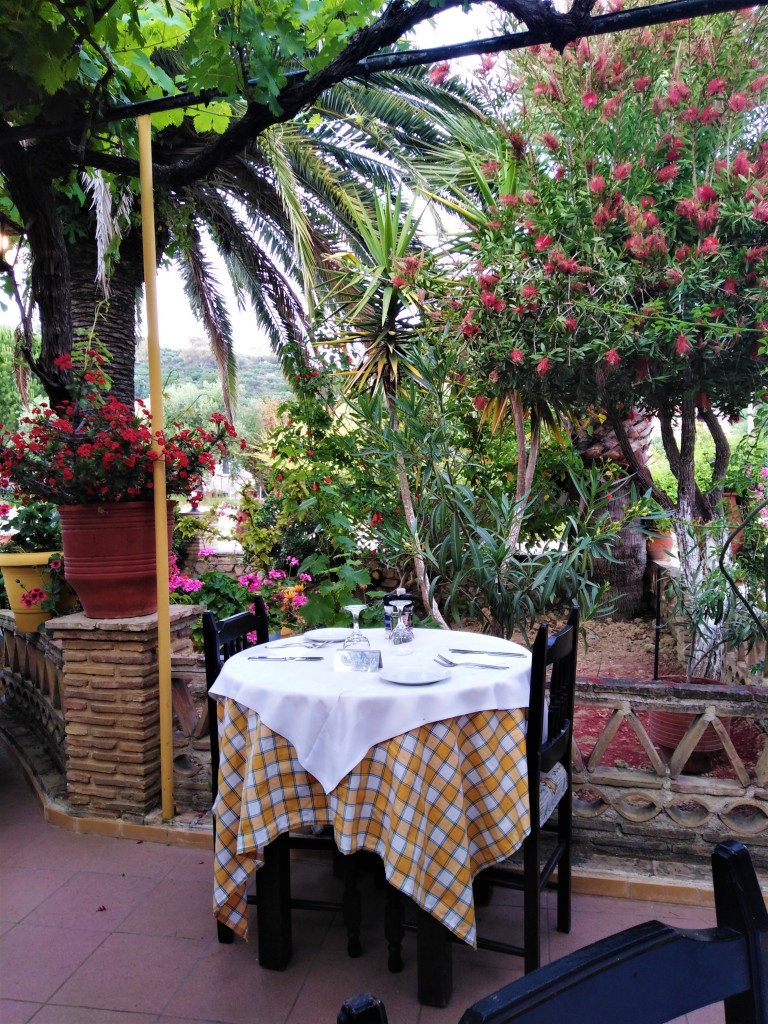
Plastic bottles left, right and centre
Something that generally grinds me gears is that a lot of people are crazy into the cute stripey paper straws and think they are saving the planet, but neglect to realise that they are not the only, or the main, problem. Don’t get me wrong, it’s a great start, but there is so much more to do.
On the Greek Islands, it is advisable to avoid the tap water. The ‘only’ alternative to this is to buy bottles of mineral water, which seemingly, tourists have absolutely no qualms with. However, when it’s 30 degrees out and you spend a large portion of your day gently cooking yourself on a beach, you’re going to be drinking upwards of 3 litres of water per day. On a 2 week holiday that’s about 40 plastic bottles you are disposing of. Perhaps in the UK that’s not such a big issue because we have such good recycling, but in Greece, there is no such thing. So why do we accept that the only thing we can do is buy loads of bottles, drink them, and then dispose of them in a big black bin? Where will that waste end up? What damage will that do? A plastic bottle can take over 500 years to decompose. Do you really want your holiday to cause over 40 plastic bottles to be around for more time than you can even fathom?
It is not just tourists at all. Locals are worse for it, but they don’t have the systems in place to deal with it. This is why, as tourists, we should be setting an example and trying to improve the problem, rather that multiplying it.
Article about plastic bottles and the ocean.
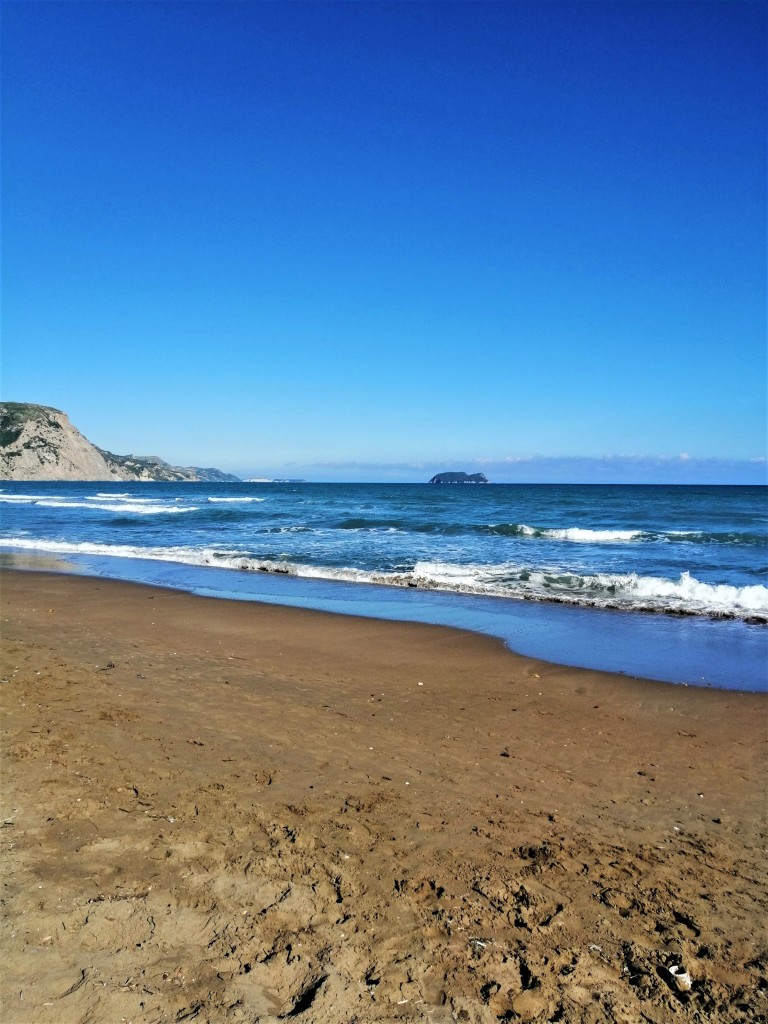
Bags, bags, bags
When it costs 10p for a bag at a British supermarket, you are inclined to take your own and not add to the over-spilling bag draw we all have in our kitchen. This change has improved our country’s plastic intake no end and it’s something we can be proud of. So why when we go abroad do we completely forget that it is indeed possible to take our own bags and not accumulate tons of spindly plastic bags that can’t be recycled?
We should be making a more conscious effort to bring our values abroad with us and ensure that our holiday doesn’t cause problems down the line for a country that doesn’t have the infrastructure to deal with it.
Article about why Loggerheads eat plastic bags and the effect of this.
The Impact of a 2 week Holiday
Greece is my favourite country and I have been visiting for almost 20 years. I have been to many different islands and the mainland a couple of times, and it truly is a remarkable place with kind people, amazing scenery and incredible food. I would always recommend Greece for a holiday, but I hope that in the very near future, British summer holidays won’t cause quite a strain on this beautiful country and their turtles.
In a 2-week holiday, one person could get through over 40 plastic straws and bottles, 10 plastic bags, 15 glass bottles, 30 plastic wrappers and maybe 6 plastic toiletry bottles (I’m thinking of the dregs of shampoo and shower gel that we leave to lighten our bag to go home). That’s just one person, and there are around 30 million tourists in Greece every year. The country cannot cope and it’s not fair on the locals who have to deal with it, or the marine wildlife who suffering because of it.
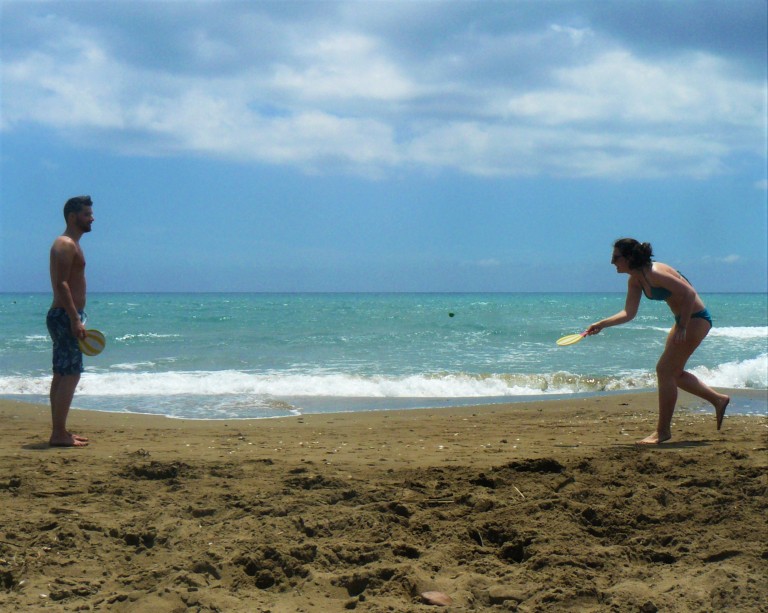
THINGS WE CAN ALL DO:
Reusable straws
Firstly, if you don’t need a straw, politely tell your waiter not to give you one, or drink your drink from the bottle or can. They normally only give them in soft drinks I find, so if you stick to beer, you can avoid this altogether!
If you have to use one, take reusable ones with you. Amazon sells so many reusable straws, I don’t know how you’d even pick, but you can get a pack for as little as £2. You could easily take these to a restaurant with you and pop them in your drink, before taking them back to your hotel to wash at the end of the night.
Another thing that I would be keen to do is find out how possible it would be for restaurants and bars to move to paper straws. Are they more expensive in Greece or do people just not think to switch? Could they perhaps start asking people if they want a straw instead of just giving one? These are all things that I would like to speak to Archelon about more than anything. If I were to volunteer again, I would find out if they are doing anything about these things and whether it could be something to move towards in the future.
Filter water bottle
This is quite an investment but I highly, highly recommend it when going somewhere that you can’t drink the tap water. I bought a water purification bottle before I visited India earlier this year, and I am so happy I did. It can purify pretty much any water with anything in it, other than salt. You can take it from a stream and it will make it completely drinkable as you squeeze it through the filter into your mouth. I trust it completely and didn’t get ill at all in India or Greece and I was solely drinking tap water.
They do cost £40, but I think it’s well worth it. They last around 3 years, and you can replace the filter at that point to make it last another 3 years. When I have told people this, their first thought is that it’s so expensive; but is it? If you buy 40 plastic bottles on holiday, and lets say they are 50p each, then you are spending over £20 on bottles of water anyway (and in a lot of touristy places, you’re more likely to pay £1 per bottle). So although it seems like a high outlay, it really isn’t a huge expense compared to what you would spend on bottles anyway.
Obviously the main advantage is that you won’t be adding 40 plastic bottles to various bins around your resort which may end up in the sea somewhere, or lying on the side of the road for a few weeks. I’m sure you will more than get your use out of it.
Some tips for using it:
- Try to keep it cold. The water can taste a bit naff when it’s warm or room temperature, so I would fill it at night, put it in our fridge and then carry it around in an insulated bag during the day.
- I also took another bottle with me that I would squeeze the filtered water into and freeze over night to then drink the following day.
- Take sterilising tablets if you want to clean the bottle whilst you’re away (just like the ones to clean babies bottles).
- Make sure the lid is on properly or it will go all over you when you squeeze it into your mouth!
- If you eat in a restaurant, ask them to fill the bottle with tap water at the end, if you need it. I’m sure they won’t mind if you are a paying customer, and it’s also a good chance to explain what it is if they ask.
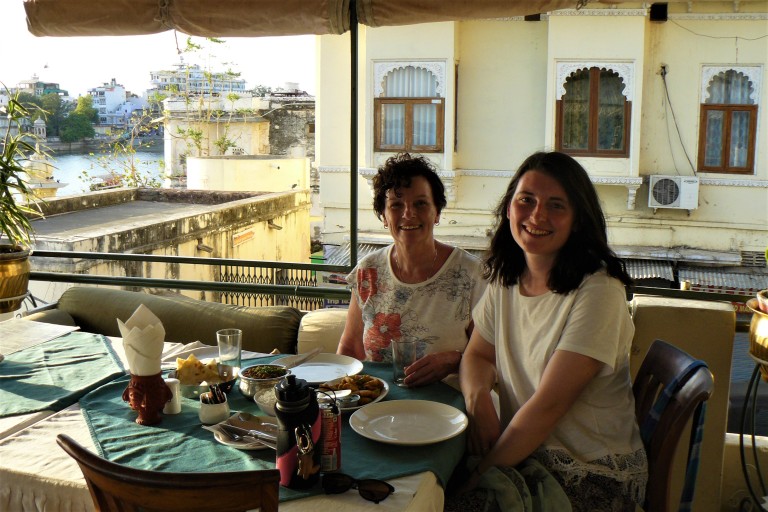
Take reusable, non-plastic bags
This one is obvious. They take up no room in your suitcase and will mean you won’t need any bags from the little shops you visit. If you forget, just keep hold of the bag you get given on your first visit and reuse it. Simple.
Take your rubbish away with you
Anything that could be recycled when you get home, like empty shampoo bottles, the odd plastic bottle or magazines you’ve picked up, should be taken back with you. It won’t add too much weight and it’s so easy to recycle back in the UK. Just reduce your impact as much as possible.
Rubbish on the beach
After a big storm, which is pretty typically when you holiday in May, we saw all sorts on the beach. The rough sea had brought up so much rubbish onto the shore and it was horrible. I saw lots of straws, bags, bottles and metal caps strewn all over the beach. If everyone on the beach had just picked up a couple of bits of rubbish, it would’ve been cleared. On our way back, we picked up what we could and filled a bag with rubbish in just a few minutes. It wouldn’t have helped much, but it’s something.
If you do see rubbish on the beach, even if it’s not yours, just pick it up.
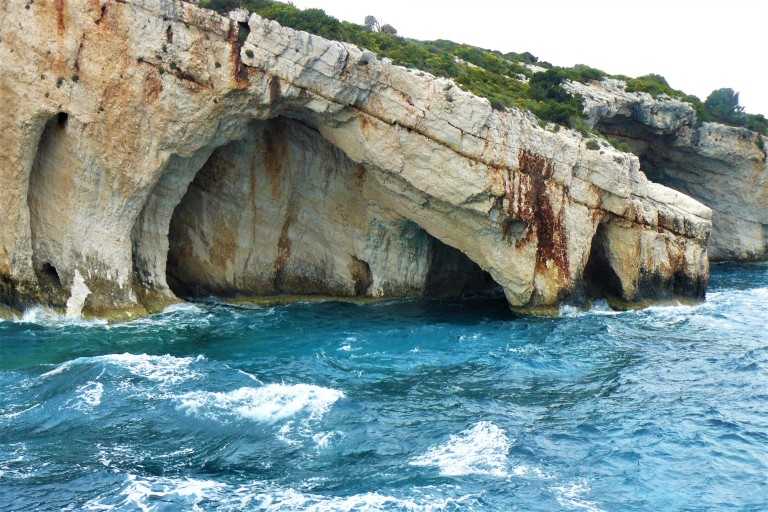
Disposing responsibly
In Greece in particular, you are likely to see side streets with over-flowing bins and roads lined with odd bits of rubbish. This is normal and will eventually get cleared, but the least we can do is not add to it. When you’re out for the day, take any rubbish you produce back to where you’re staying and put it in a bin.
Respecting the turtle nests
Part of what Archelon does is protect the nests they find on the beaches. In Laganas Bay in Zakynthos, there are over 1000 by the end of the summer. If you see them on the beach, feel free to have a look and find out some information, but don’t tamper with them. The volunteers are doing beach patrols every morning from 5am and work incredible hard to protect the hatchlings, and don’t need people tampering with them. Avoid going to the beach at night in case you trample over one, or worse, one of the wandering hatchlings.
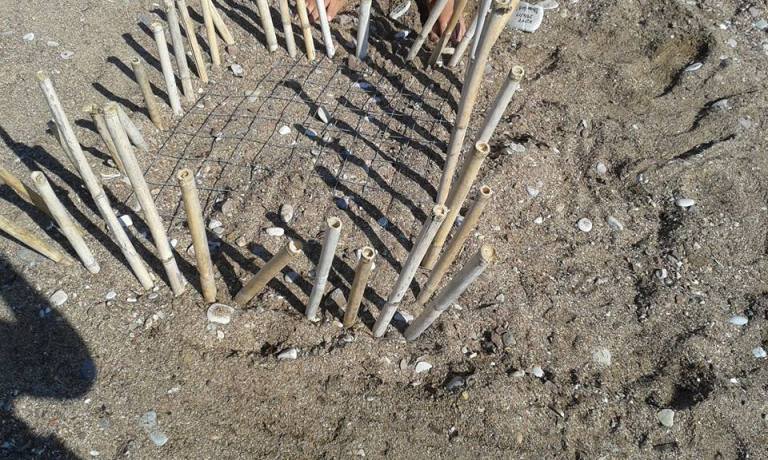
These are all really simple and easy solutions to big problems created by ignorant tourists. Just because you’re on holiday, doesn’t mean you should forget all the things you know we should be doing. Perhaps if enough people do it, it will eventually create a positive change for Greece and the Loggerheads.
A quote that’s been circulating for a while is: “We don’t need a handful of people doing zero-waste perfectly. We need millions doing it imperfectly.”
It’s true, we don’t all need to do it perfectly, but imagine how much of an impact it would have if more of us can use these simple steps to reduce our impact.
I hope I can still return to Greece for holidays for the rest of my life, and that at some point in the future they will see a big change with regards to refuse and recycling. Until then, I will always try to reduce my individual impact on their country and enjoy it without leaving anything else behind.
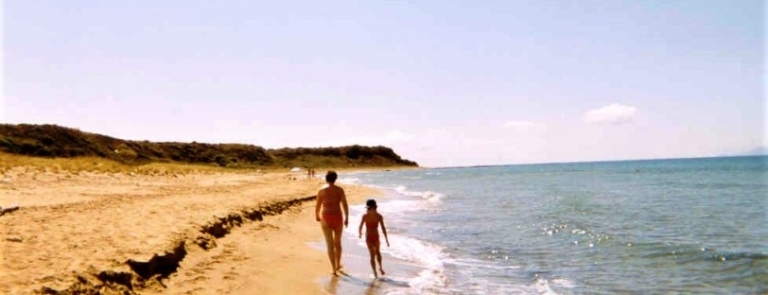
From Lou
PS. Here’s a post I wrote a little while ago about my feelings towards this insane country.

How many are aware that to be taking drinking water from plastic bottles in the hotter climates is detrimental to health because the toxicity from the plastics chemicals leach out with the heat into the water to be drunk?
Personally I am not impressed by the public being charged 5p a carry bag when the supermarkets themselves are doing absolutely nothing to cut back on their heavy use of plastics, often with multiple plastic wrappings on products. This criticism of plastics without a solution isn’t right so an alternative is needed, that alternative is hemp (flax and cotton too possibly): https://sensiseeds.com/en/blog/hemp-plastics-made/
LikeLike
Thanks for the comment. All very true and I totally agree, people just aren’t aware. Thanks, Lou.
LikeLike